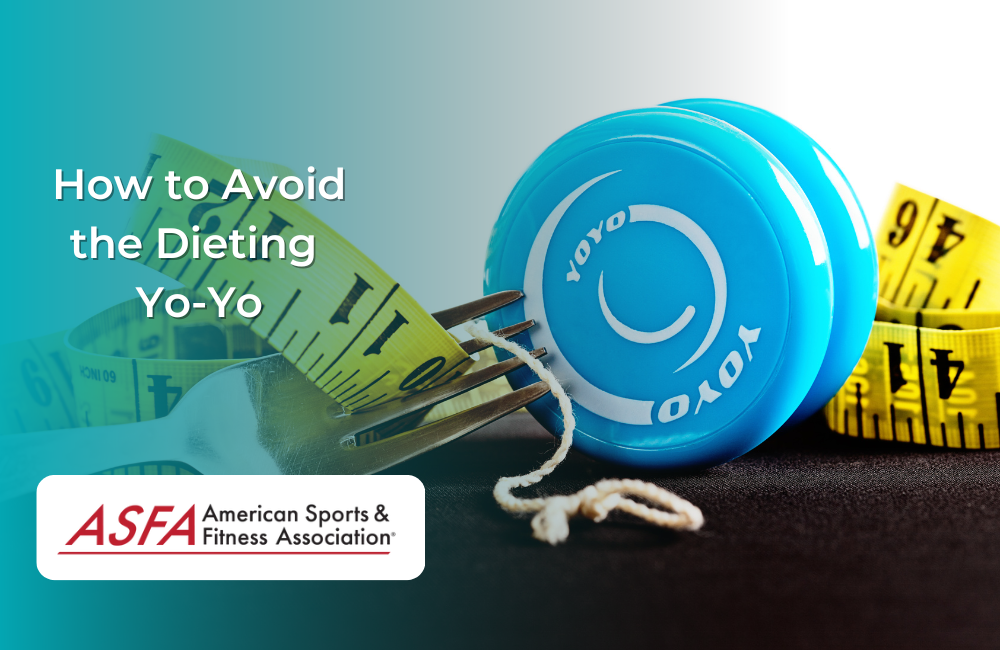Yo-yo dieting is repeatedly losing and gaining the same amount of weight. It's not a good way to lose weight because it can set you up for weight gain, heart disease, diabetes, and other health problems. A study by Dr. James O'Keefe found that yo-yo dieters were at greater risk for developing high blood pressure than people who had never been overweight or obese. But what if you've already tried every diet out there and still need to see results? What if all those diets have left you discouraged? It may be time to try something new: Lifestyle changes instead of quick fixes!
Dieting the wrong way can set you up to gain more weight than you lost.
Dieting the wrong way can set you up to gain more weight than you lost. This is called "yo-yo dieting," and it's a common problem for people trying their best to lose weight.
Yo-yo dieting happens when someone quickly loses weight by eating fewer calories or going on extremely restrictive diets but then regains all of that weight plus more in just a few months.
Why does this happen? When we go on restrictive diets, our bodies react by slowing down our metabolism so that we burn fewer calories each day--even when we're not exercising! This means that even if we start eating normally again after losing weight rapidly with crash diets or fad diets (or any other type), our bodies will still be burning fewer calories than usual and storing more fat than expected--which means putting yourself at risk for gaining even more pounds over time.
It's not just about eating less and exercising more when it comes to losing weight.
It's not just about eating less and exercising more when it comes to losing weight.
You need to make healthy food choices that are right for you--and stick with them! If you're going on a diet, don't let yourself cheat or get off track by saying, "This one time won't hurt." Because here's the thing: if you eat something unhealthy once in a while (or even regularly), that can become part of your normal behavior--and before long, all those extra calories will add up and cause weight gain!
You should also exercise regularly as part of any healthy lifestyle plan because it helps keep our bodies active during the day so we don't feel sluggish when we get home from work or school at night after sitting around in front of our computers doing homework assignments online through websites.
Fat cells in your body store extra energy, acting as a built-in safety net against starvation.
The more fat cells you have and the more they expand, the more energy you can store. This means that if your body needs to use up some of its stored energy--for example, after consuming less food than usual--it will use those extra fat cells before breaking down muscle tissue and organs for fuel.
The reason why this happens is that our bodies have evolved to protect themselves from starvation by storing as much fat as possible during times when food is plentiful so that we'll have enough stored calories on hand during times when food isn't available or when we need extra fuel (like during pregnancy). In other words: When it comes down to choosing between eating yourself or eating someone else...eat yourself!
You can lose weight rapidly on any diet if it restricts calories.
You will lose weight if you eat less than your body requires to maintain its current weight. If this sounds obvious, it's because it is. It doesn't matter what kind of food you're eating--you can lose weight on a low-fat diet, a low-carb diet, or even veganism (if those last two sound like they'd be hard). You could even do so by eating high-protein foods or high-fat ones! All that matters is how much energy your body uses up each day compared with how much energy it gets from food intake.
You can't outrun a bad diet no matter how much you exercise.
Exercise is good for you, but it will only help you lose weight if you eat the right things. If you eat too many calories after working out, your body will store more fat than before! This is why it's so important that when starting an exercise program or changing your routine, you pay attention to what goes into your body and how long and hard it has been working out.
Your metabolism slows down as you lose weight, meaning fewer calories are needed for the same activity.
As you lose weight, your metabolism slows down as you get smaller. This means that fewer calories are needed for the same amount of activity. This is why it's so easy to regain weight once you've lost it: You can't outrun a bad diet!
If you want to keep off the pounds for good, then it's important not only that you maintain an active lifestyle but also that you eat enough food--and not too much--to maintain a healthy weight and keep your body working properly.
You need to change your lifestyle by making healthy food choices and exercising regularly to keep the weight off.
Here are some tips for keeping yourself on track:
- Make small changes in your diet and exercise habits. If you want to start exercising regularly but are still determining what exercises would be good for you, try walking or swimming as part of an overall plan that includes strength training twice a week (in addition to resistance bands). A combination like this can help with weight loss and improve muscle tone while reducing stress levels at work or home life too!
- Set realistic goals that are achievable within a reasonable amount of time frame before giving up entirely because they seem too difficult right now. For example, "I'm going cut out soda completely within two weeks" isn't realistic unless someone has been drinking three cans per day every single day since birth (which isn't likely). Instead, try something like, "I'll just drink less than two cans per week from now on." This way, even if things don't go exactly how planned, we won't feel discouraged because we know what happened wasn't our fault but rather just bad luck
You can avoid yo-yo dieting by changing your lifestyle rather than restricting calories.
This means making healthy food choices and getting regular exercise.
It's important to remember that weight loss is not just about losing fat. It's also about maintaining muscle mass and bone density, improving cardiovascular health, and reducing the risk of diabetes or heart disease. By focusing on these factors, you'll be able to lose weight in a way that lasts long-term--and keep off those pounds for good!
Conclusion
If you want to lose weight and keep it off, the best thing to do is change your lifestyle by making healthy food choices and exercising regularly. This will help you avoid yo-yo dieting and maintain a healthy body weight long-term.





